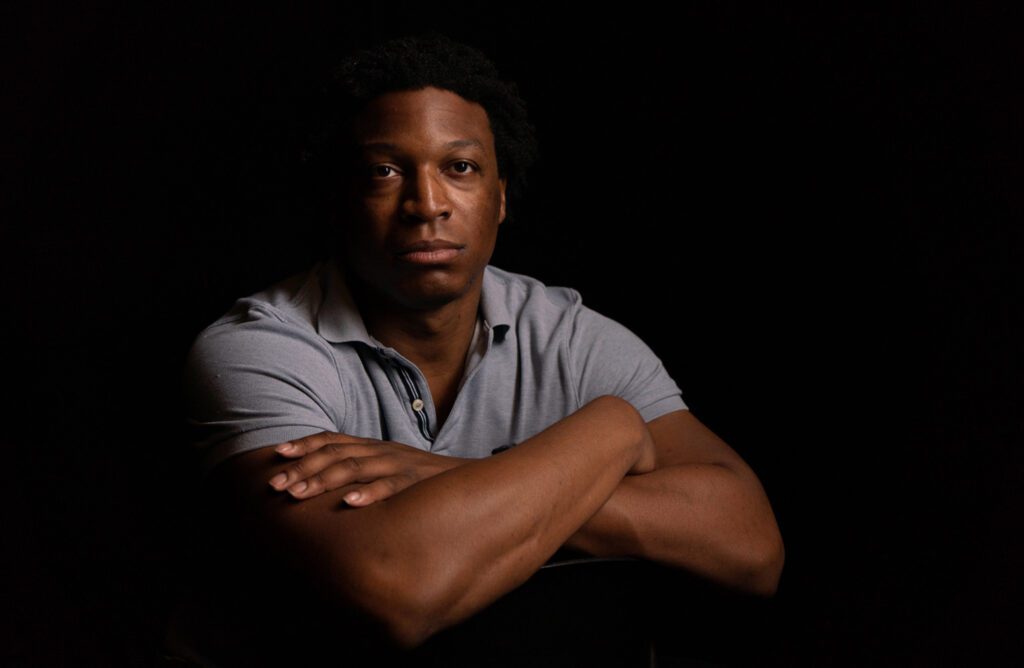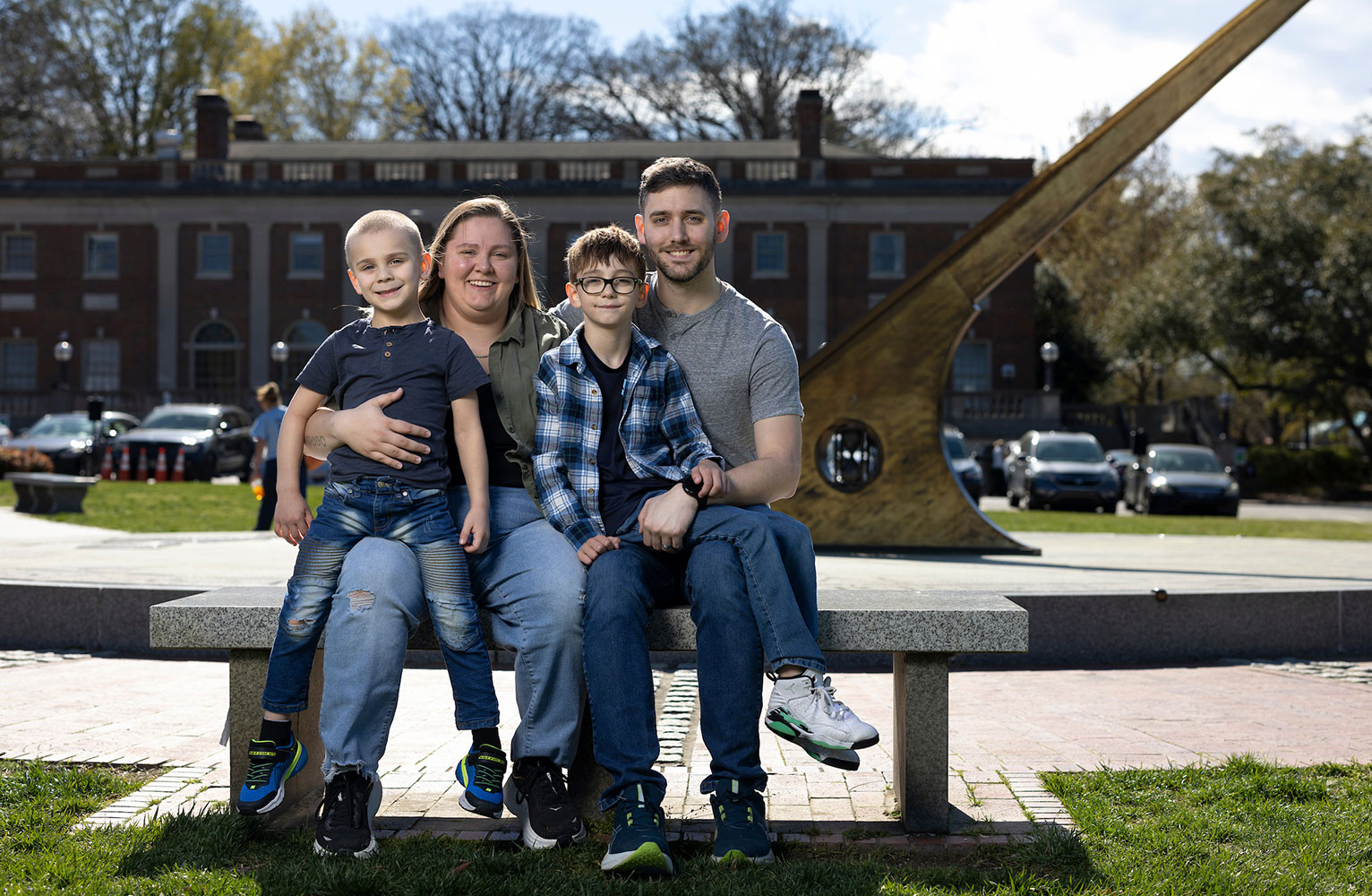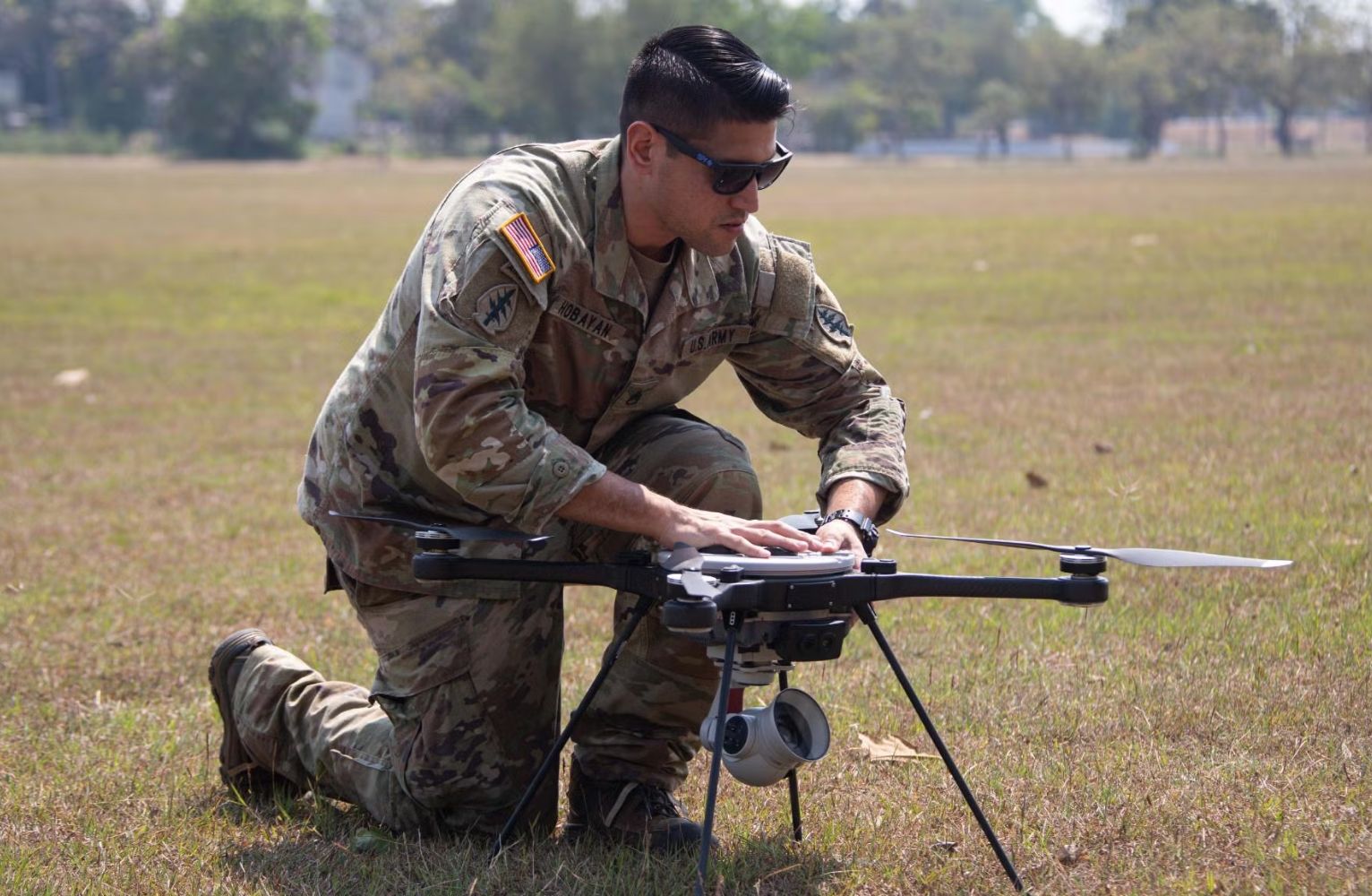 While Daniel Johnson — PhD student and Roy H. Park Fellow in the UNC Hussman School of Journalism and Media — was trained as an infantry officer in the U.S. Army, he quickly realized the importance of journalism.
While Daniel Johnson — PhD student and Roy H. Park Fellow in the UNC Hussman School of Journalism and Media — was trained as an infantry officer in the U.S. Army, he quickly realized the importance of journalism.
In 2016, at the height of ISIS power, he served as his unit’s journalist during a deployment in Iraq. His job was to cover the positive moments within the drudgery of war for Army families and the public — topics like U.S. progress and profiles on individuals.
“When I volunteered to be the journalist, I didn’t know what AP style was,” Johnson explained. “I didn’t know how to take photos or videos either.”
Now, he is in a PhD program at the UNC Hussman School of Journalism and Media, a top-ranked journalism school; his photos and videos have been used by the Associated Press and MSNBC; and his writing has inspired congressional legislation.
But his path to this point has been defined by loss and a struggle of his own.
Upon getting back to the U.S in 2017, Johnson reflected on his and his peers’ struggles with mental health. Post-traumatic stress disorder (PTSD) was prevalent among the returning men and women. Suicide was not uncommon. Within six years of homecoming, seven of the soldiers that Johnson deployed with died by suicide.
“A lot of the guys in my unit were 18, 19 and 20,” Johnson said. “They all suffered physically and mentally.”
Now at Carolina, he structures his research to align with requirements for his classwork while uncovering data on military mental health.
The Department of Defense publishes data on military suicides, including ages and branches of the armed forces. They also issue mental health policies and official memos, but there is a disconnect between those and the data, which show increasing suicide rates even as support systems are updated and resources are improved.
Johnson writes about what he discovers and publishes it in outlets that have a much broader reach than most class assignments, like Slate, The New York Times and Task and Purpose, to name a few.
“I write to have a public and a policy impact,” he said.
His work is doing just that. Carolina has answered calls from the Pentagon, looking to talk to Johnson about his research and writing. Congress has changed legislation on the basis of his research and writing, too, using his work on broken and outdated suicide prevention links to make a change to the military’s support system.
“This is why I turn my research into journalism articles: to be part of the public pressure to effect change,” Johnson said.
Read the complete Carolina Story…
Related Stories

 While Daniel Johnson — PhD student and Roy H. Park Fellow in the UNC Hussman School of Journalism and Media — was trained as an infantry officer in the U.S. Army, he quickly realized the importance of journalism.
While Daniel Johnson — PhD student and Roy H. Park Fellow in the UNC Hussman School of Journalism and Media — was trained as an infantry officer in the U.S. Army, he quickly realized the importance of journalism.

